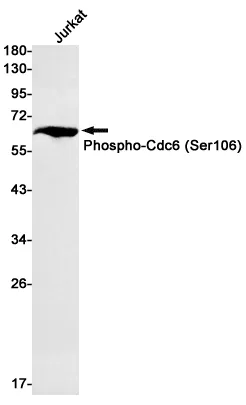Summary
Performance
Immunogen
Application
Background
Cell localization:Nucleus . Cytoplasm ..ribosomal protein S6 kinase A3(RPS6KA3) Homo sapiens This gene encodes a member of the RSK (ribosomal S6 kinase) family of serine/threonine kinases. This kinase contains 2 non-identical kinase catalytic domains and phosphorylates various substrates, including members of the mitogen-activated kinase (MAPK) signalling pathway. The activity of this protein has been implicated in controlling cell growth and differentiation. Mutations in this gene have been associated with Coffin-Lowry syndrome (CLS). [provided by RefSeq, Jul 2008],
Research Area




